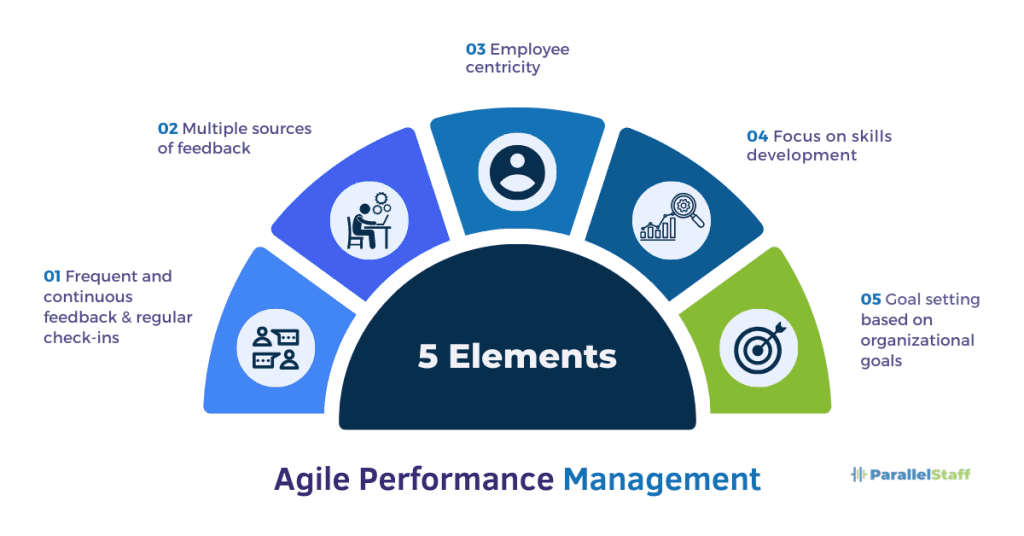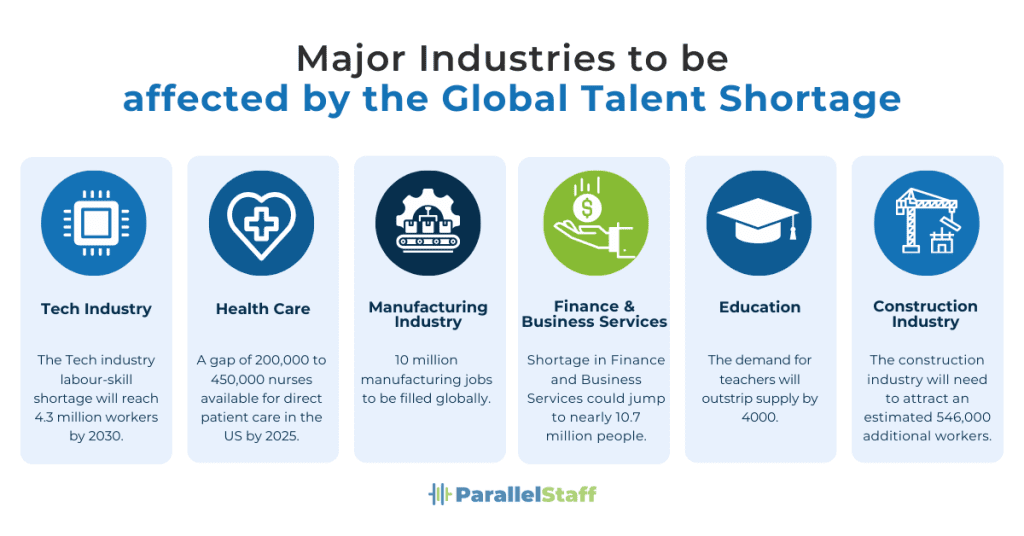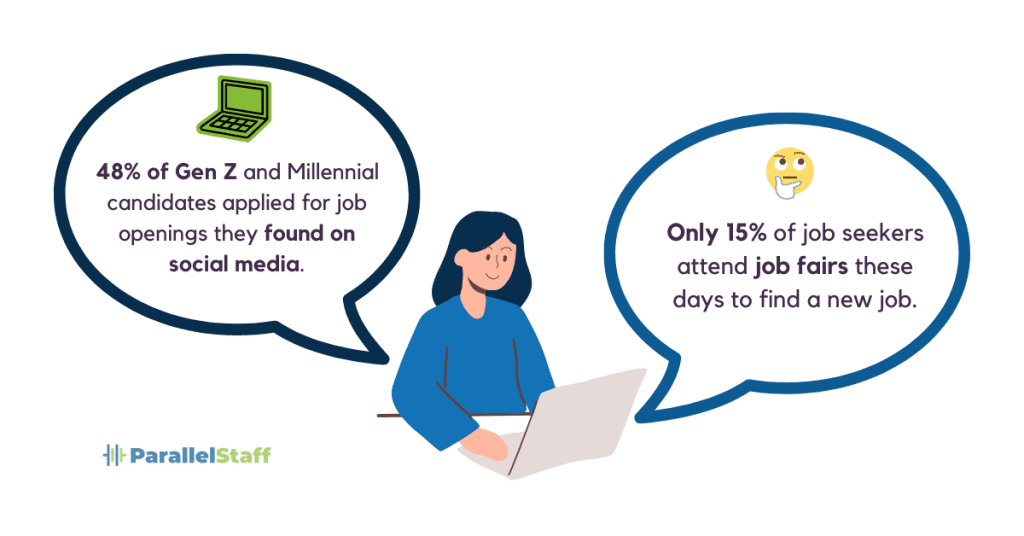Unlocking Success: Your Comprehensive Guide to IT Staffing Solutions
Tech & Business
Read Time: 15 mins

In the digital landscape, appropriate IT staffing is critical. This specialist section of staffing focuses on meeting the unique needs of the information technology sector, which includes a wide range of professions from software development to network security.
IT staffing is more than just filling vacancies; it's about bridging the gap between dynamic technological innovations and the human expertise required to handle them successfully.
 Furthermore, including technical evaluations and behavioral interviews in the selection process can assist in guaranteeing that candidates have both the hard and soft skills required for success in IT positions. Plenty of guides help you understand how to recruit specific positions, such as software engineers, to supplement your IT team effectively.
Furthermore, including technical evaluations and behavioral interviews in the selection process can assist in guaranteeing that candidates have both the hard and soft skills required for success in IT positions. Plenty of guides help you understand how to recruit specific positions, such as software engineers, to supplement your IT team effectively.
 Implementing flexible, agile performance management methods that allow for continuous improvements in efficiency and satisfaction in IT departments can significantly improve the quality of the work.
By focusing on recruitment and selection, investing in training and development, and applying agile performance management practices, IT executives can create high-performing teams that drive innovation and contribute to business success.
Implementing flexible, agile performance management methods that allow for continuous improvements in efficiency and satisfaction in IT departments can significantly improve the quality of the work.
By focusing on recruitment and selection, investing in training and development, and applying agile performance management practices, IT executives can create high-performing teams that drive innovation and contribute to business success.
 This gap is especially pronounced in developing technology disciplines such as cybersecurity, data science, and artificial intelligence. The scarcity of talent makes it more difficult to discover qualified people and raises wages, making it difficult for businesses to afford top staff.
This gap is especially pronounced in developing technology disciplines such as cybersecurity, data science, and artificial intelligence. The scarcity of talent makes it more difficult to discover qualified people and raises wages, making it difficult for businesses to afford top staff.
 Furthermore, referral programs encourage current employees to suggest high-quality experts from their networks, often resulting in more engaged and long-term staffing.
Furthermore, referral programs encourage current employees to suggest high-quality experts from their networks, often resulting in more engaged and long-term staffing.
 Artificial intelligence (AI) can improve recruitment efforts by forecasting candidate success, assessing work history, and matching persons with appropriate roles.
Furthermore, virtual reality (VR) and augmented reality (AR) are emerging as tools for providing immersive job previews and evaluations, giving candidates a better understanding of their possible work environment and activities.
Artificial intelligence (AI) can improve recruitment efforts by forecasting candidate success, assessing work history, and matching persons with appropriate roles.
Furthermore, virtual reality (VR) and augmented reality (AR) are emerging as tools for providing immersive job previews and evaluations, giving candidates a better understanding of their possible work environment and activities.
 As these technologies advance, we should expect an increase in demand for individuals with these skills, as well as a shift in the recruiting process, with AI-powered exams and virtual reality interviews becoming the standard.
As these technologies advance, we should expect an increase in demand for individuals with these skills, as well as a shift in the recruiting process, with AI-powered exams and virtual reality interviews becoming the standard.
What is IT Staffing?
IT staffing is not just the standard employment process of finding and placing employees based on qualifications. Instead, it involves finding employees with the technical competencies necessary to drive initiatives forward. Unlike everyday staffing solutions, IT staffing is rooted in technology, necessitating a high-level understanding of emerging technologies and the specific needs of the IT sector. This methodological approach ensures organizations get the necessary intellectual capital to achieve their technological goals and solve problems.The Importance of IT Staffing in the Digital Age
In this digital age, where technology permeates every part of the company, having the proper IT expertise is more than simply an advantage; it is a requirement. The correct recruitment strategy can result in innovations that increase competitiveness, operational efficiency, and market leadership. In addition, a skilled, adaptive, and forward-thinking workforce is required due to the fast-changing technology. What is critical about IT staffing is that it enables firms to keep pace with technological advancements and anticipate future trends. This involves striking a balance between technical possibilities and human capabilities that can contribute to the success of businesses at new levels.Factors Affecting IT Staffing
Many factors influence IT staffing, bringing more complexities and dynamics to recruiting tech talent. Being aware of these variables is crucial for IT leaders striving for opportunities to build skilled technical workforces.Understanding the IT Landscape and Demand
The 2024 IT salary report by Robert Half Technology shows businesses are focusing on roles related to DevOps, cloud, digital transformation, security, privacy, AI, automation, system upgrades, and data analytics. The $245 billion IT services industry has a positive outlook, with 10% to 15% salary increases for specified roles in 2024. The Bureau of Labor Statistics reports that IT roles are projected to grow three times faster than average between 2019 and 2029. That equates to over half a million new jobs, demonstrating the critical requirement for strategic IT staffing. The demand for expertise in cloud and infrastructure, data and analytics, and transformation recruitment has surged as organizations embark on comprehensive digital journeys. Professionals skilled in these areas are highly sought after for contract and permanent positions, with no indication of a decrease in demand in the foreseeable future. Consequently, organizations aiming to fill such roles must move quickly to secure the best talent available in the market before their competitors do.Hiring Trends in the Technology Sector
Hiring trends in the IT sector indicate a drive towards more flexible and adaptive staffing practices. Companies are increasingly relying on a mix of permanent, contract, and freelance IT specialists to create a resilient and adaptable workforce. This tendency is driven in part by the need to respond swiftly to technical changes and market needs. For example, IT staff augmentation services, such as those offered by ParallelStaff, allow businesses to increase their IT teams in response to project demands without making a long-term commitment to hiring full-time employees.The Impact of Automation and AI on IT Staffing
Automation and artificial intelligence are affecting the IT staffing industry by automating repetitive tasks and creating the need for new abilities. As per findings by McKinsey, by 2030, nearly 30% of working hours globally may be automated. This change does not involve substituting humans but makes them more effective and creates opportunities for IT professionals to involve themselves in a more strategic and creative career. Thus, human resource strategies in IT must change to pay attention to the skills required for managing and collaborating with robots and artificial intelligence.Components of IT Staffing
Successful IT staffing includes several essential components that work together to guarantee that firms find and retain the best IT professionals. These components constitute the foundation of a strong IT workforce capable of driving technical innovation and business success.Recruitment and Selection Process
The recruitment and selection process is the initial step for forming a skilled IT team. The process involves choosing individuals with the required computer know-how and those who can fit into the organization's ethos. Organizations must embrace creative selection methods like social channels, tech meetings, and hackathons to lure in the crème-de-la-crème of professionals in the competitive employment market. Furthermore, including technical evaluations and behavioral interviews in the selection process can assist in guaranteeing that candidates have both the hard and soft skills required for success in IT positions. Plenty of guides help you understand how to recruit specific positions, such as software engineers, to supplement your IT team effectively.
Furthermore, including technical evaluations and behavioral interviews in the selection process can assist in guaranteeing that candidates have both the hard and soft skills required for success in IT positions. Plenty of guides help you understand how to recruit specific positions, such as software engineers, to supplement your IT team effectively.
Training and Development of IT Staff
Once suitable candidates are on board, continuous training and development are imperative. The fast-paced nature of the technology industry necessitates that IT workers constantly refresh their skills to keep up with new technologies and processes. Offering regular training programs, access to online courses, and the opportunity to attend industry conferences can assist IT professionals stay up to date on the latest technologies. Furthermore, promoting a culture of learning and development can boost employee engagement and retention, which benefits the firm.Performance Management for IT Teams
Effective performance management is essential to ensure the IT team is productive, motivated and aligned with corporate goals. It involves setting clear performance metrics, giving continual feedback, and recognizing and rewarding achievements. Moreover, this kind of performance management needs a delicate approach due to the uniqueness of technical projects, such as fast-shifting requirements and creativity and innovation necessity. Implementing flexible, agile performance management methods that allow for continuous improvements in efficiency and satisfaction in IT departments can significantly improve the quality of the work.
By focusing on recruitment and selection, investing in training and development, and applying agile performance management practices, IT executives can create high-performing teams that drive innovation and contribute to business success.
Implementing flexible, agile performance management methods that allow for continuous improvements in efficiency and satisfaction in IT departments can significantly improve the quality of the work.
By focusing on recruitment and selection, investing in training and development, and applying agile performance management practices, IT executives can create high-performing teams that drive innovation and contribute to business success.
IT Staffing Challenges
Building a skilled IT workforce is filled with challenges, each requiring strategic thinking and creative solutions. Understanding firms' main challenges can help IT leaders design practical solutions to address them.Talent Shortage in the IT Industry
A skills shortage is one of the most significant challenges confronting the IT industry. Despite the increased demand for IT specialists, there aren't enough qualified people to meet the expanding number of open positions. A Gartner study found that 64% of IT executives say tech talent shortage is the biggest barrier stopping them from adopting new technologies. This gap is especially pronounced in developing technology disciplines such as cybersecurity, data science, and artificial intelligence. The scarcity of talent makes it more difficult to discover qualified people and raises wages, making it difficult for businesses to afford top staff.
This gap is especially pronounced in developing technology disciplines such as cybersecurity, data science, and artificial intelligence. The scarcity of talent makes it more difficult to discover qualified people and raises wages, making it difficult for businesses to afford top staff.
Dealing with Rapid Technological Changes
The technology landscape constantly changes, with new tools, languages, and approaches emerging rapidly. This change poses a considerable challenge to IT staffing, as skills that were in demand yesterday may become obsolete tomorrow. This is why it is often beneficial to partner with nearshore firms that can help source the right talent. Keeping IT staff up to date with these developments needs constant education and adaptation and a sharp eye in recruitment for personnel who are proficient and lifelong learners who can pivot as technology progresses.Higher Employee Turnover Rates in IT
The IT industry is notorious for high staff turnover. This tendency is influenced by several variables, including the increased demand for IT skills, which allows experts to change jobs in search of better opportunities regularly.
Strategies to Overcome IT Staffing Challenges
To address the talent shortage, businesses might widen their search to include previously untapped talent pools, such as fresh graduates or individuals from other industries with transferable abilities. Investing in training and development programs can also assist existing employees to improve their skills and fill skill gaps. To keep up with the rapid rate of technological change, the organization must commit to ongoing learning and development. Encouraging an innovative culture, in which employees are given time and resources to experiment with new technologies, can help to keep IT professionals engaged and current. In addition to widening talent searches and cultivating a culture of continuous learning, utilizing the experience of nearshore recruitment professionals can provide a strategic advantage for solving IT hiring problems. Companies like ParallelStaff provide specialized services tailored to the IT sector's specific demands, allowing access to a larger pool of talent while mitigating some of the industry's fundamental issues. Finally, businesses should prioritize employee engagement measures beyond salary to combat high turnover rates. Offering flexible working conditions, prospects for promotion, and a culture that emphasizes work-life balance can all assist in retaining IT experts.IT Staffing Strategies
Developing effective IT staffing strategies is critical for firms looking to manage the complexity of the technology sector and attract top personnel. These strategies address current staffing demands and plan for future trends and difficulties, ensuring that businesses remain competitive and inventive.Innovative Sourcing Techniques
In the present fast-paced IT sector, traditional candidate sourcing methods are insufficient. Companies must use unique sourcing strategies beyond job boards and career fairs. Strategies such as using professional networking platforms, engaging in social media recruitment, and forming collaborations with educational institutions might help you find hidden talent pools. Furthermore, referral programs encourage current employees to suggest high-quality experts from their networks, often resulting in more engaged and long-term staffing.
Furthermore, referral programs encourage current employees to suggest high-quality experts from their networks, often resulting in more engaged and long-term staffing.
Leveraging Technology for Recruitment
Technology can help to streamline the recruitment process, making it more efficient and productive. Applicant tracking systems (ATS), for example, automate the first screening of resumes, reducing time and guaranteeing that no qualified candidates are ignored. Artificial intelligence (AI) can improve recruitment efforts by forecasting candidate success, assessing work history, and matching persons with appropriate roles.
Furthermore, virtual reality (VR) and augmented reality (AR) are emerging as tools for providing immersive job previews and evaluations, giving candidates a better understanding of their possible work environment and activities.
Artificial intelligence (AI) can improve recruitment efforts by forecasting candidate success, assessing work history, and matching persons with appropriate roles.
Furthermore, virtual reality (VR) and augmented reality (AR) are emerging as tools for providing immersive job previews and evaluations, giving candidates a better understanding of their possible work environment and activities.
Building a Strong Employer Brand
A strong employer brand makes a difference when hiring top IT professionals. In a competitive employment market, candidates typically have the option of choosing their employer. Organizations that articulate a clear value proposition while emphasizing their culture, values, and dedication to employee development stand out. Social media, company websites, and employee testimonials are all useful platforms for promoting an employer brand. After a brand revamp, Brother International saw a 140% increase in completed applications and a 40% increase in job seekers. An excellent reputation attracts candidates and boosts retention rates since employees are likelier to stick with a company that shares their values and professional goals.Utilizing Nearshore Recruitment Specialists
Nearshore recruitment specialists like ParallelStaff are invaluable in developing efficient IT staffing strategies. By providing access to a large pool of talent in regions with similar time zones and cultural affinities, these experts can drastically cut the time and expense of hiring. Their knowledge of the local employment market and technical developments allows firms to fill positions with highly trained workers quickly. Companies wishing to optimize their IT staffing process can benefit greatly from working with a nearshore specialist, allowing them to focus on core company activities while ensuring their staffing needs are expertly managed.Role of IT Staffing Agencies
In the complex market of IT staffing, specialized agencies play an important role, providing essential services to businesses looking to negotiate the hurdles of recruiting top tech talent. Understanding when and how to interact with these agencies can significantly improve an organization's ability to hire people efficiently and effectively.When to Consider an IT Staffing Agency
Choosing a suitable moment to hire an IT staffing agency is paramount. Organizations usually resort to these experts during periods of fast expansion or when they require unique abilities in short supply. Furthermore, firms with tight project deadlines or that require scalable staffing solutions may benefit greatly from an IT staffing agency's agility and vast networks. When internal recruitment efforts fail to satisfy the needs of IT personnel, outsourcing to a specialized agency can provide a strategic advantage.Selecting the Right IT Staffing Agency
The selection of an IT staffing agency should be treated with the same care as employing a valuable employee. The right agency should comprehend the organization's specialized needs and particulars of the technology business. Consider the agency's track record, the breadth of its talent pool, recruitment processes, and ability to understand and integrate with the company's culture and technical requirements. Client testimonials and case studies can provide helpful information about an agency's capabilities and success rate.Benefits of Using an IT Staffing Agency
The advantages of partnering with an IT staffing agency are manifold:- Access to Specialized Talent: Agencies have extensive networks of pre-vetted IT professionals, allowing them to quickly fill positions with individuals with highly specialized expertise.
- Speed: Because of their focus and resources, staffing agencies may considerably reduce hiring time, allowing businesses to respond quickly to market demands and project requirements.
- Flexibility: IT staffing services provide scalable solutions ranging from temporary placements to permanent employment, allowing businesses to alter their personnel based on project needs and business cycles.
- Risk Mitigation: Working with an agency lowers the risks associated with recruiting because agencies frequently provide assurances and help throughout the placement process, assuring a good fit for both the organization and the candidate.
The Future of IT Staffing
As we look ahead, several new trends and technical breakthroughs will define the future of IT staff. These components have the potential to transform how firms attract, hire, and retain IT professionals, assuring agility and competitiveness in a quickly changing digital world.The Growing Importance of Remote IT Staffing
In 2024, over 16% of US companies operate and hire entirely remotely. Remote staffing solutions have shown enormous promise for businesses to gain access to a global talent pool, breaking down geographical barriers and allowing the procurement of top personnel regardless of location. This trend toward remote IT staffing is projected to continue as businesses see the value of a broad, flexible workforce that can work across time zones and contribute diverse perspectives and talents.The Impact of Emerging Technologies on IT Staffing
Emerging technologies like artificial intelligence (AI), machine learning (ML), and blockchain are transforming company operations and substantially impacting the IT workforce. These technologies necessitate specialized skill sets that are now rare, forcing firms to reconsider their talent acquisition methods. As these technologies advance, we should expect an increase in demand for individuals with these skills, as well as a shift in the recruiting process, with AI-powered exams and virtual reality interviews becoming the standard.
As these technologies advance, we should expect an increase in demand for individuals with these skills, as well as a shift in the recruiting process, with AI-powered exams and virtual reality interviews becoming the standard.
